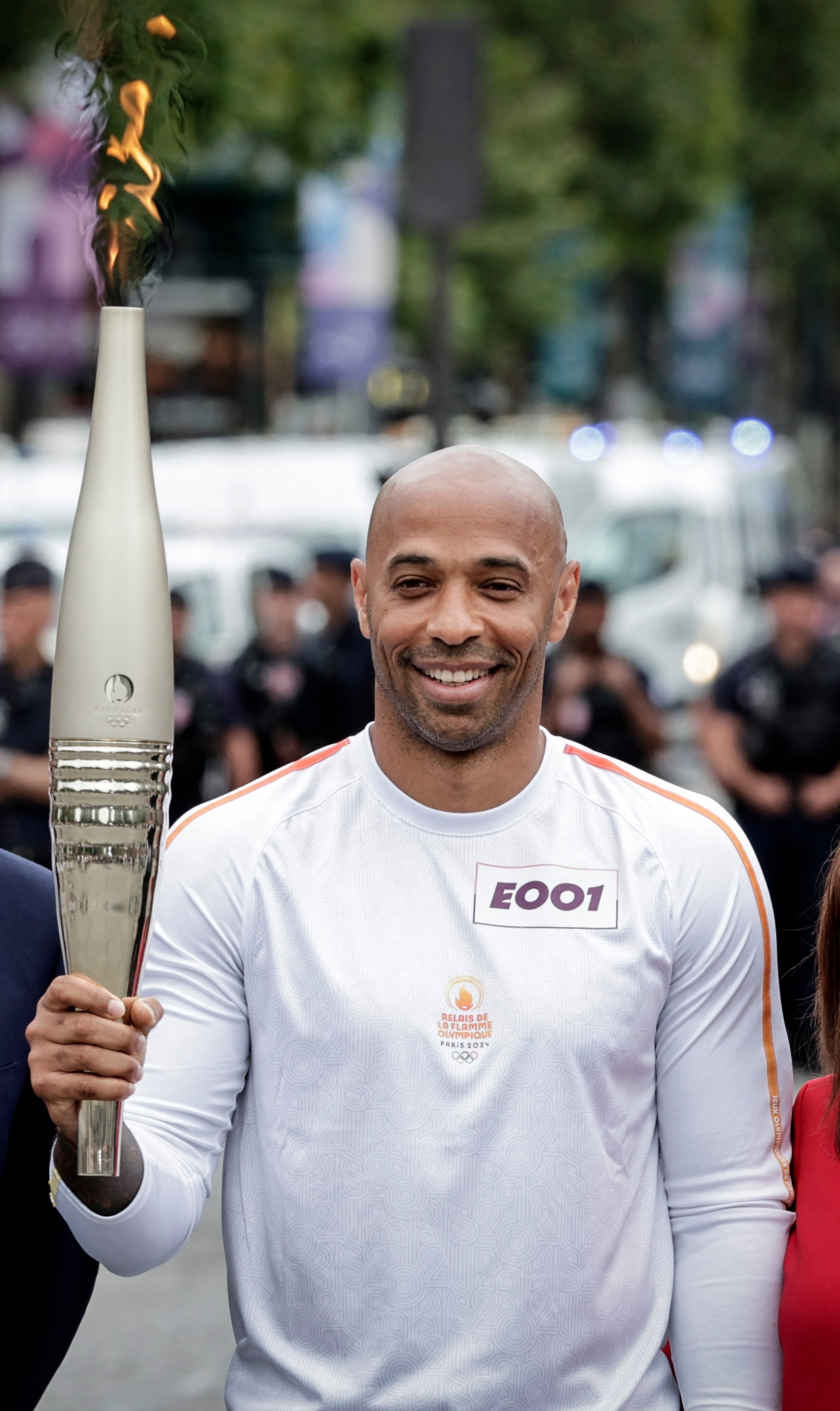The Olympic Games in Paris owed much of its spectacle to LVMH, the luxury goods powerhouse that looms large over the French capital. The €366 billion group, home to brands such as Louis Vuitton, Dior and Tiffany, had its stamp all over the international sporting event. Sephora, its cosmetics brand, sponsored the Olympic torch relay. Berluti designed France’s opening ceremony uniforms. Chaumet, the jeweller, designed the Olympic medals, which were held in cases created by Louis Vuitton.
Yet shares in the world’s biggest luxury business have had a rocky year. LVMH has lost 12 per cent, or €44 billion, of its market value since the start of the year. The shares fared particularly badly in July, when the company reported that its sales growth had been slower than expected.
LVMH, like the rest of the luxury industry, is fighting off long-term worries about demand from Chinese consumers and that the sector, which has been enjoying record rates of growth for years, may be stalling.
Even with the recent fall in the share price, Bernard Arnault, LVMH’s chief executive, still topped the Forbes rich list in March, which pegged his and his family’s net worth at $233 billion, more than the likes of Elon Musk and Jeff Bezos, although the three men frequently swap places, depending on the performance of their respective companies.
LVMH, born from a merger between Moët Hennessy and Louis Vuitton in 1987, is family-owned. As of the end of last year Arnault, 75, who has led the group since 1987, together with his family owned 48.6 per cent of the business, with 64 per cent of the voting rights. Arnault’s five children all work within the group.
It is home to 75 maisons. Its biggest business group by far is fashion and leather goods, which made €42 billion in sales in 2023, just under half its total. This is also its most profitable business, accounting for operating profits of €16.8 billion, just under three quarters of the group total. Its second largest business by revenue is “selective retailing”, which covers Sephora, its cosmetic beauty brand, as well as Le Bon Marché, its department store, and DFS, a small travel retailer. This is followed by watches and jewellery, at €10.9 billion, perfumes and cosmetics, at €8.2 billion, and finally by wines and spirits, at €6.6 billion.
Overall, the group has roughly 6,000 stores across the world. Just under a third of its sales come from Asia (excluding Japan), 25 per cent from the United States and 17 per cent from Europe (excluding France).
For the past two decades the luxury industry has enjoyed phenomenal growth, in no small part because of the growing size of the middle and upper classes in Asia, particularly in China. Indeed, at LVMH, Asia, excluding Japan, accounted for 17 per cent of sales in 2000. By 2010 this had risen to 25 per cent.
But the Chinese are now watching their money more carefully. A fragile domestic economy, rocked by a slump in the country’s property sector, has made them more cautious. Those still seeking out luxury goods are travelling to Japan to do so, lured by the weak yen. The Asia Pacific sales of the likes of LVMH, Burberry and Gucci have all taken a hit in the past year. LVMH itself reported that its sales in Asia excluding Japan had fallen by a tenth in the first six months of 2024.
Overall organic sales grew by a modest 2 per cent in the first half. This puts the conglomerate somewhere in the middle of the pack, beating the likes of Kering, where sales dropped by 11 per cent, although some way behind Prada and Hermès, where revenues grew by 18 per cent and 15 per cent, respectively.
In general, it is the smaller brands that are struggling to keep up. Investors need look no further than Burberry, which replaced its chief executive this summer after a failed attempt to reposition itself further upmarket. Its £2 billion market value pales in comparison with the likes of LVMH, or even Kering. Indeed, LVMH’s sheer size gives it a more defensive edge. The group enjoys the advantages of its huge scale in areas such as talent development and marketing.
Key to LVMH’s long-term success will be keeping its luxury brands elevated. Loud, logo-driven brands have been in decline, according to a Bank of America study, and an understated aesthetic of quiet luxury has grown in popularity. LVMH’s history of design expertise, with brands that are well-known across all generations, is a positive.
LVMH now trades at 21 times its forward earnings, largely in line with other luxury groups that have announced modest growth recently, including Moncler, at 22, and Richemont, at 20. It also has solid underlying quality, with an operating margin at 25.6 per cent and a decent dividend, with the shares expected to yield 2 per cent over the next 12 months.
This, combined with the breadth of its luxury brands, has drawn in the likes of Terry Smith, one of the most closely followed British fund managers. His £24 billion Fundsmith Equity Fund has held a position in LVMH since 2020 and it now ranks in its top ten holdings.

The group’s sales to Chinese consumers would need to grow by 20 per cent in 2023 to 2025 for the compound annual growth rate to match that before the pandemic, according to Bank of America. This looks highly unlikely. Instead, LVMH, and the rest of the luxury sector with it, appears to be drifting into a period of normalisation. The dips in this industry tend to last for a couple of years, but in the long term LVMH’s prospects remain sound, thanks to its impressive stable of brandsand its huge scale. Given that the shares are trading at a multiple not reached in roughly four years, it seems a decent bargain for investors willing to hold in the longer term.
Then there is the matter of the share price itself, which is north of €600. Last year Arnault dismissed the idea of a stock split to make share ownership more accessible, stating that LVMH shares “are also a luxury product”. For those who are less willing to fork out hundreds for a single share, there are ways to hold the company indirectly. The £2 billion Fidelity European Trust, which is listed in London and trades at a 4 per cent discount to its net asset value, counts LVMH among its top ten holdings. Its shares trade at a more affordable level, at just under £4 apiece.
Advice Buy
Why Resilient business as luxury industry normalises
